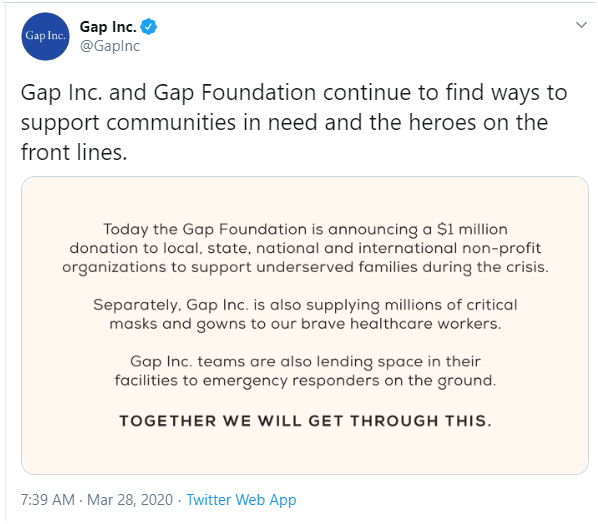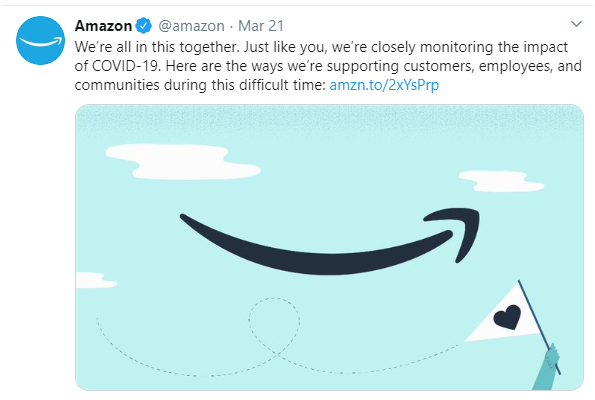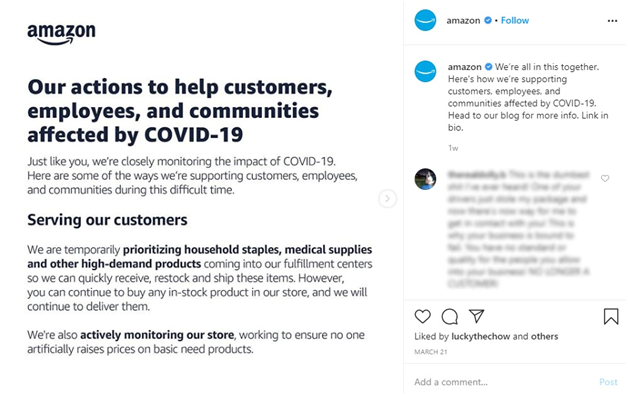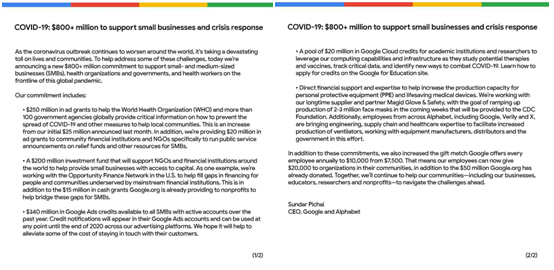Give a helping hand: Why should you put customers first during a crisis? [Tuesdays: “Write with the Pen of the Masters”]

7 CRISIS COMMUNICATION TIPS
EVERY ORGANIZATION SHOULD MASTER
#3 Put the Victims First
– – –
Australian fires, Nashville tornados, and now, the worldwide spread of COVID-19.
Each and every one of these crises left a wake of victims in their path.
Looking at the crisis at hand, by the end of last week, there were a total of over 700,000 confirmed cases of COVID-19 and around 30,000 casualties worldwide.
The virus has left families, towns, cities, and entire countries with multiple victims. It has also emotionally and mentally affected other people over fears of getting infected.
Those who are in a position of leadership may be wondering how to address these individuals and similar kinds of situations. How can we offer support and encouragement during a time of crisis?
These questions and feelings of uncertainty have led us here at Valens Research to aid you in addressing these issues based on the 7 Crisis Communication Tips Every Organization Should Master from Northeastern University’s Communication program, where our CEO is an alumnus of the university.
If you’ve been following the past two articles, you’ve already learned how to Respond Quickly and how to Leverage Support. This week, we want to address the importance of Putting the Victims First.
During a crisis, it’s not about you!
Think of others.
When dealing with a crisis, it’s of primary importance to be open to an individual’s feelings and listen to what they have to say. Dr. Ed Powers of Northeastern University said it best when he stated that:
“The starting point for the response has to be about the people and what they’re experiencing.”
No one likes to feel neglected or unheard, especially if they have been affected or harmed. So, allowing your client or customers to know that you’re listening to them and that they can rely on you is the key.
In order to let them know you can be relied on, you need to do two things:
- Apologize – Issuing an apology lets your client know you are listening to them. Your hope is to build a relationship of trust by admitting when you’re wrong (if you’ve done something wrong).
ALWAYS make sure that your apology is genuine by clearly stating you’ve done something wrong and admit you made a mistake. If your apology is insincere, mistrust will only escalate and could possibly damage your company’s image.
In times of crisis like the current COVID-19 pandemic, your company might need to apologize for the postponement and suspension of your services, which gives you an opportunity to empathize with your customers and understand their needs.
You can create emails and public announcements to state that you would not be able to provide your customers with what they need at the moment. This is best done in the mode of communication that your customers are used to so they can easily view it.
You can explain the current state of your businesses and tell them that you would be able to resume operations at a later date. This will help them understand your predicament and can be an opportunity to give them a timeframe of when you would be able to accommodate them. - Ask: How May I Be of Service? – The next step after apologizing and empathizing with your customers is taking action. In order to do this, you must allow them to have a say. Collaborate with your client or customer by asking them, “How may I serve or help you?”
By asking this, you create a space of cooperation and transparency. Applying this to the current pandemic, you should propose alternative ways that you can service your customers and provide support and aid during these hard times.
By understanding how your customers feel about the crisis and how they think you should address it, you have a better chance of truly working out a helpful solution. This would address your clients or customers’ needs and overcome this crisis.
When applying this to your email announcements and social media posts, you can provide a list of ways that customers can still do business with you, or propose a way to support the people currently in need.
This gives customers an option to get what they need, while also given the chance to participate in a good cause.
Overall, placing the affected client or customer above anything and everything is of key importance during a crisis. Whether the crisis was caused by internal or external factors, your customers come first.
Your company has to make a genuine effort to understand their feelings and outlook on the crisis. This also has to be reflected in the way you communicate with them.
Knowing that your words matter and that even the smallest actions can make a difference is central towards finding solutions to the problems being faced.
Take a moment to acknowledge some companies working toward the greater good to fight COVID-19:
- Gap Foundation: Gap has made a USD 1 million donation to local, state, national, and international non-profit organizations to support underserved families during the crisis. The Gap Inc. has also supplied millions of masks and gowns for healthcare workers as well as donating their facilities, which were closed due to quarantine, to be used for emergency responders.

2. Amazon: Amazon has been one of the most prominent supporters in assisting COVID-19 relief efforts. To highlight only a few of their most important contributions, Amazon used its web service platforms to help Boston Children’s Hospital track the spread of COVID-19 and help healthcare providers assess symptoms remotely. They have also donated over USD 3.9 million to organizations such as the Red Cross.


3. Google: Google also has also provided aid for COVID-19 relief. They set aside USD 800 million to be used for ads in order to help fight COVID-19. They have also donated money to government organizations as well as small businesses.


These are only a few of the businesses that dedicated much of their time to seeing, listening, and acting towards giving relief to many victims of COVID-19. Their actions toward this crisis have had a monumental effect, encouraging more companies to focus on supporting the community in these times.
These examples are proof that it’s important to act with genuine intentions, as you can create positive results that benefit your customers and the community.
These actions have a huge impact in helping COVID-19 relief efforts. As more companies and brands provide support and aid, the global effort to overcome this pandemic becomes stronger.
About The Dynamic Marketing Communiqué’s
“Tuesdays: Write with the Pen of the Masters”
Who doesn’t find content writing to be a skill that requires a lot of practice and effort?
In fact, many people may even find copywriting very intimidating.
However, you can be a good writer as long as you have the right tools. You won’t always get things right the first time, but with enough time and practice, you’ll get the hang of it!
When you write a copy for any brand or for your company, your aim is to make an impact and…
…to get people to remember.
Getting people to remember means getting consumers to buy your product or to avail of your service.
And when you get your content to deliver the results you want, THAT is a great copy!
Every Tuesday, we publish content based on tips and insights from the masters of content writing, copywriting, and storytelling.
Become more familiar with ways to write great copy that helps you gain ROI from your efforts, drive profitability, and achieve your business goals.
Learn time-tested tactics that better capture the attention of your target audience, and maximize the benefits of great copywriting.
Hope you found this week’s insights interesting and helpful.
Stay tuned for next Tuesday’s “Write with the Pen of the Masters!”
Cheers,
Kyle Yu
Head of Marketing
Valens Dynamic Marketing Capabilities
Powered by Valens Research
www.valens-research.com




